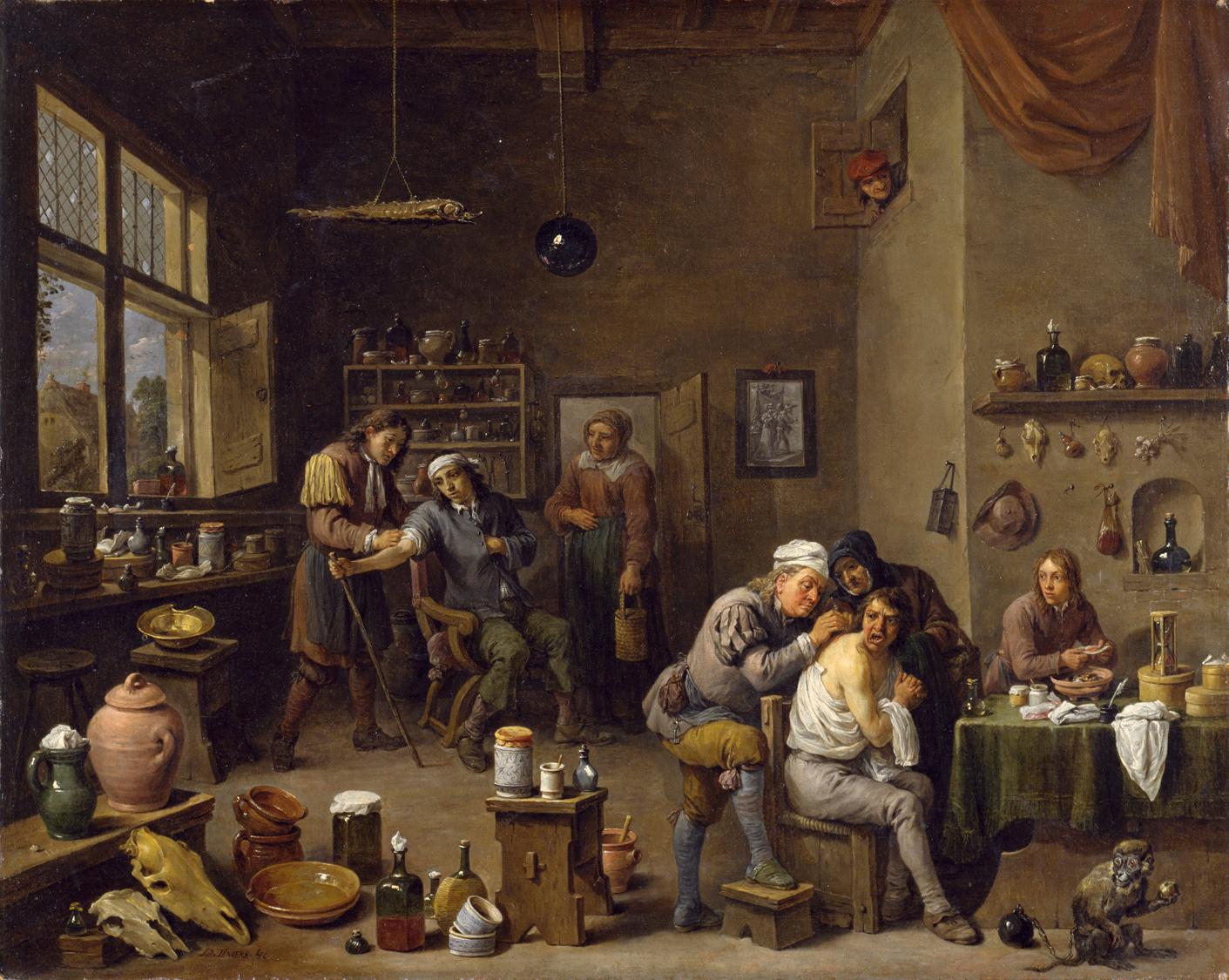
Painting - The Surgeon by David Teniers the Younger, 1670s, wikimedia commons, public domain
Becoming a father was important to the long term survival of the settlement. Men sought brides that they hoped would have as many children as possible. A large family was seen as a sign of success and a blessing from God. Fatherhood gave a man increased social status, and confidence that he would be cared for in his old age. Men who had farms were particularly anxious to have sons to help with the vast amount of work.
Often, a man might expect his son to become an apprentice in his particular work. For example, Hans Kierstede's son Roeloff followed in his father's footsteps by becoming a surgeon.
For the Dutch, there were traditions and furniture that related to becoming a father including the cradle , the children's chair, and the low whicker seat or “bakermat” for nursing.
The enslaved Africans had a very different experience of fatherhood or motherhood. Their children were automatically the property of their owners. Enslaved children could be sold to other families, 'loaned out' for a fee to the owner, and their enslaved parents had no recourse. See an example here: https://encyclopedia.nahc-mapping.org/document/indenture-service-maria-young-negro-girl-nicolaes-coorn
Former slaves who had been given conditional freedom knew that their children were slaves, as the conditional freedom did not extend to family members. Some of them applied for manumission of their children. https://encyclopedia.nahc-mapping.org/document/petition-domingo-angola-…
The Indigenous people had their own traditions and ceremonies relating to motherhood and fatherhood. Because many of the Algonkian tribes were matrilineal, becoming a mother was particularly important.

